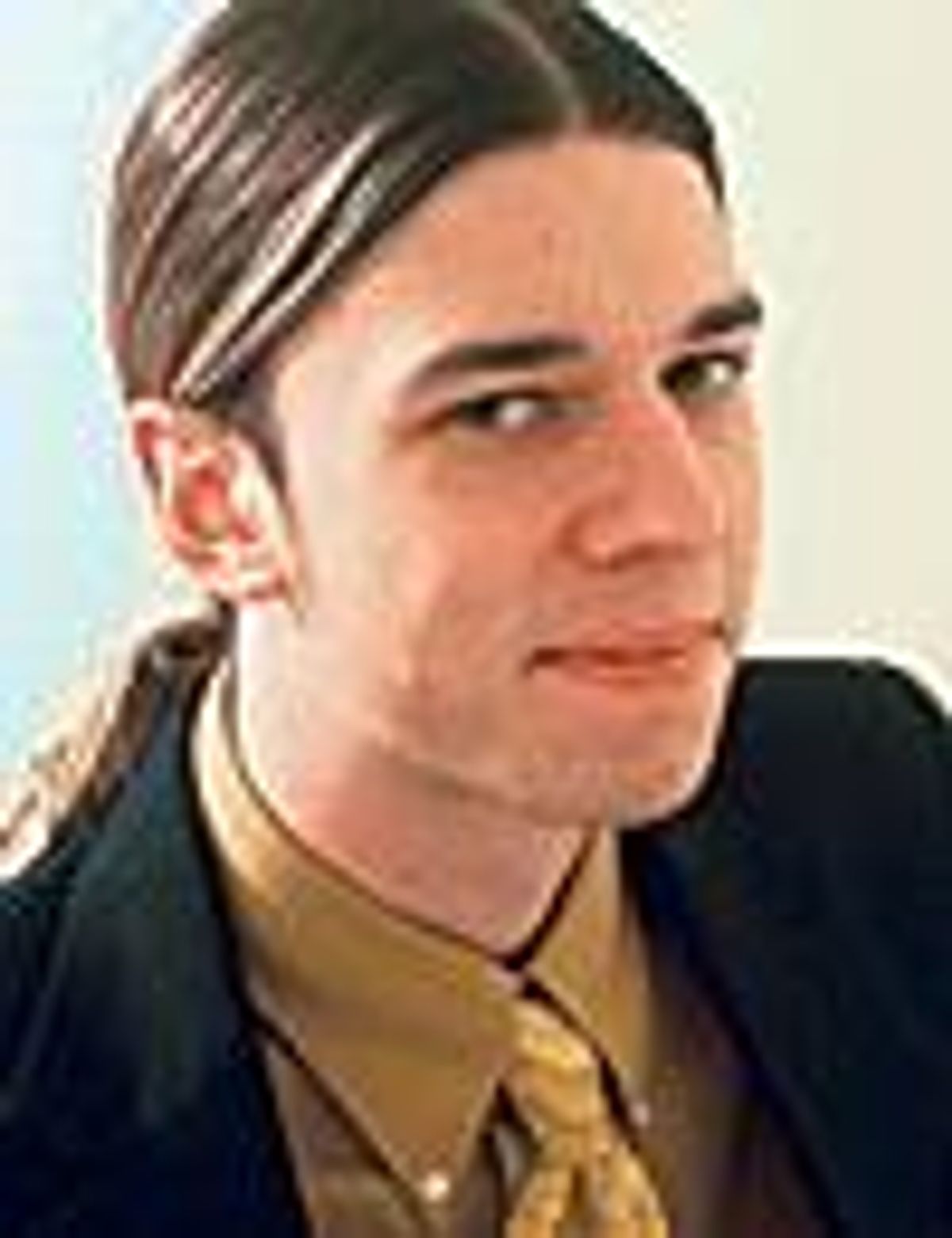Satre is a junior at Notre Dame Academy, a private
Catholic high school in Middleburg, Va., and the
founder of the Virginia LGBT activist group
Equality Fauquier-Culpeper. He writes regular journal
entries for The Advocate.
I'm
sitting uncomfortably in the backseat of an old Honda on the
New Jersey Turnpike nearing the middle of the night.
My mom is sitting in the driver's seat, livid
at the driving skills--or lack thereof--of the
other drivers. My grandmother sits beside her,
fidgeting with the radio and consistently complaining
of the incessant thumping of the modern music: how
absolutely classic (pun intended).
The decision is
made, the music is settled, and three generations of
traditional Irish Catholic family sit at peace after a trek
from Virginia to New Jersey. The car ride is calm now;
only random flashes of streetlights and headlights
rift through the darkness of the two-ton weapon that
makes us feel so secure.
I'm
sitting here lost in the threads of light that pass by,
glimpses of headlights, brake lights, and the shadows
inside. Each shadow casts a different shade of gray
and black--different shapes and sizes, and
different shades of the same mixture. They are all silently
sailing in a sea of steel, each with a life and story.
Last night my
story was false. I was but a mere shadow in a sea of
colors. People were going to and fro on a dreary rainy day
in D.C. as I got off the Metro. Woods, one of the
Metro workers, came up to me. He and I had met before.
After helping me get a new "SmarTrip" card,
Woods smiled. "Get a lot of them girls at
school, d'ya?"
I froze. What
should I say?
"Yes." I just wanted to be done with the
conversation before I was wrapped in the very lies I
had overcome since I was outed four years ago. But
Woods continued in a conversation full of lies, deceit, and
praise for my way with women in the world of everyday,
average teenage boys in America.
After a year in a
public position as a gay person, I stood silent to one
man who simply classified me as every other American. I
stood silent while Woods spoke of girls, dating, and
sex--and I nodded, fake, almost as if I were
back in the closet. I was a lie, a liar, a closeted fool
whose courage died down in the middle of a sea of
colors. In that single moment I was simply the shadow
I used to be. I was untrue to myself as I once was.
That night I had
been talking to a reporter in my hometown of Culpeper,
Va., who put down his notebook and pen and assumed a serious
tone. He wanted to know how my family had been
affected, because within the past year the country has
turned attentive to someone in their family: me.
Miles later on
the New Jersey Turnpike, my grandmother and mother are
jeering away at the diverse gossip of our comical relatives.
Suddenly, the air goes silent: A ringing voice from
the radio fills the claustrophobic atmosphere within
this steel box.
Maybe the
reporter meant to ask: How has it affected me?


















































































Viral post saying Republicans 'have two daddies now' has MAGA hot and bothered